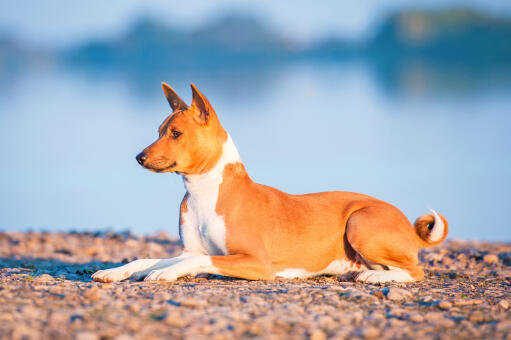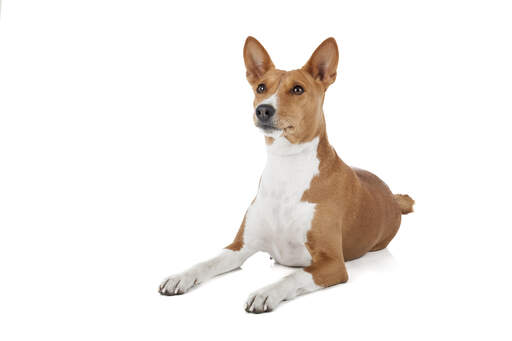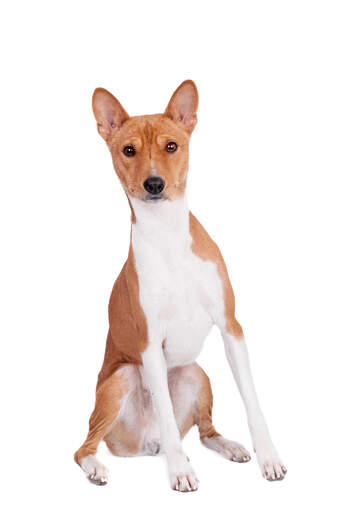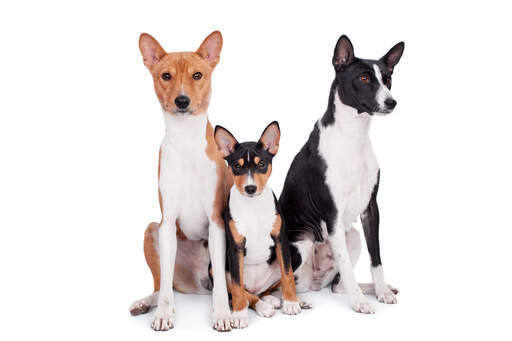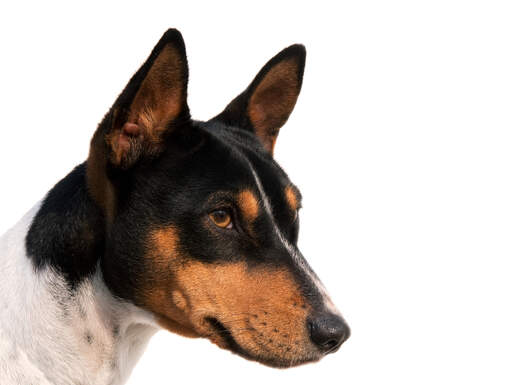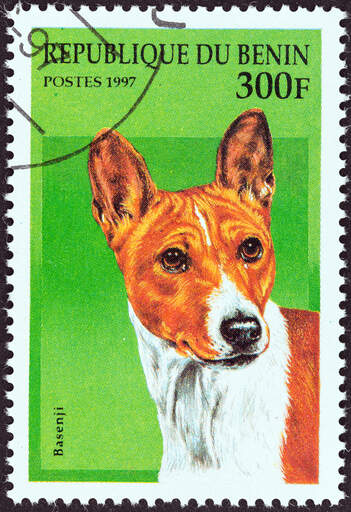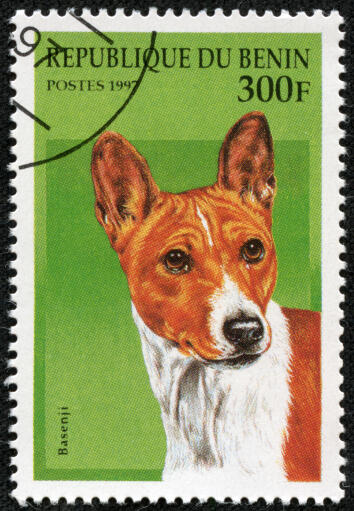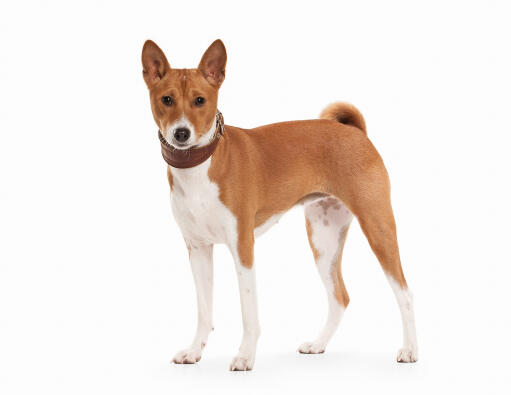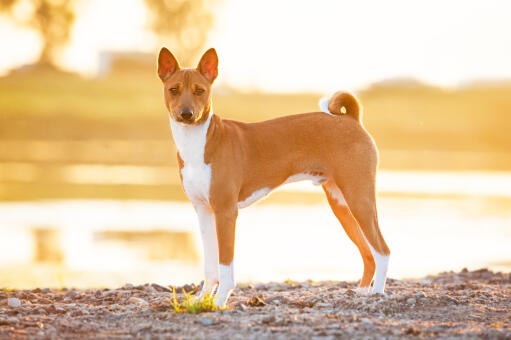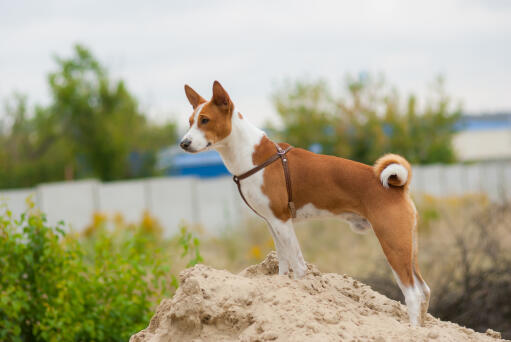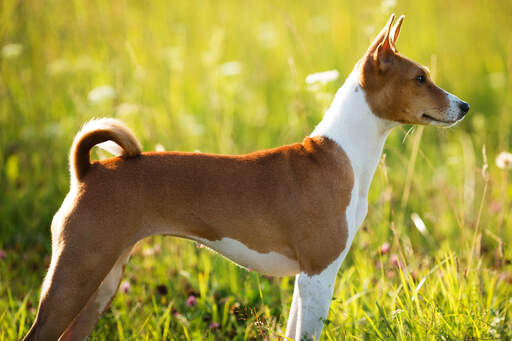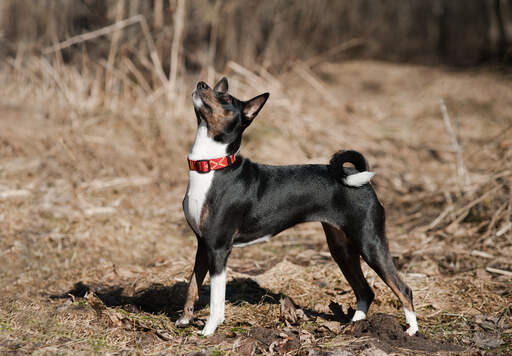Basenji Dogs













History
The Basenji breed was developed in the Congo region of Africa, and the first specimens identified by European explorers were found living with the Pygmy hunters of the Congo rainforest. The dogs were used as pack hunters to herd game. After some false starts, in 1930 a few Basenjis were successfully imported to England and became the foundation of a breeding programme. By the 1950's the breed was becoming popular as a pet and show dog, in both Europe and the USA.
Behaviour
The Basenji is unusual in that the females only comes into season once a year. It is also known as the 'barkless dog', as it has a kind of yodel and howl repertoire rather than a series of woofs!
Basenjis are an alert and inquisitive, faithful to their owners, and wary of strangers. They make good family dogs too. They have playful nature and love attention, although they are not recommended if you have small children. They have tendency to nip if they feel threatened, and children's enthusiastic, clumsy play can be interpreted by them as a threat.
These dogs have a strong instinct to hunt, so they need to be watched. They can escape many gardens, using their surprising climbing ability to make an exit and go chasing. Once they get out - and if they are determined, they often find a way - they are fast runners, and therefore hard to bring back. Their recall is hopeless, and they are considered one of the hardest breeds to train. It will take a thorough, patient and expert trainer to get the message through.They are intelligent, but incredibly stubborn and set in their ways. Training therefore takes a long time.
The Basenji is classed as sight hound, and it has certain terrier mannerisms. They thrive if they are given definite tasks, such as lure coursing, agility, competitions, etc. This will help keep them mentally and physically active and prevent destructive behavior around the home. They respond well to a treat-based reward system during training. In spite of their stubbornness they will often cower (or growl) if you shout at them.
Basenjis do not like being left alone, and in their frustration in an empty house they will empty the kitchen garbage, or seize an object such as a toy, shoe or toilet roll to keep themselves entertained. They need company, and as long as they get it they are affectionate and devoted. They have a cute habit of standing on their hind legs in a 'meerkat' pose, to see what's going on around them. They are comical and clever and will twist you around their little finger if you let them!
In spite of their Rainforest origins (or maybe because of it) Basenjis dislike getting wet. They sometimes refuse to go outside if it is raining. They are clean animals, and fastidious with their personal grooming, forever licking themselves. With their coat being short, and with this self-centred grooming habit, Basenjis need hardly any grooming from their owners.
Health wise, they can suffer from Falconi syndrome whereby the kidneys fail to absorb nutrients; treatment is widely available if caught early on.
Temperament
Basenjis are intelligent and inquisitive. They are usually reserved around strangers, but form strong bonds with their family, and are affectionate once they know you. They are very playful, but don't easily tolerate other cats and other dogs unless they have been introduced to them at an early age. They dislike going out in the rain and snow, but they also need a good amount of daily exercise - bear that in mind if you live somewhere with lots of precipitation throughout the year.
Health Problems
Basenjis are prone to Fanconi syndrome (a type of kidney disease), Progessive Retinal Atrophy (PRA: degeneration of retina causing blindness), and inflamattory bowel disease.
Breed Details
- Status: Common
- Life Expectancy: 12 - 16 years
- Weight: 22 - 25 lb
- Height: 16 - 17"
- Rare: No
- Coat: Short
- Grooming Requirements: Once a week
- Town or Country: Either
- Minimum Home Size: Small House
- Minimum Garden Size: Small to Medium Garden
- Breed Type: Hound
- Size: Medium
- Energy Level: High
- Exercise Required: Up to 1 hour

